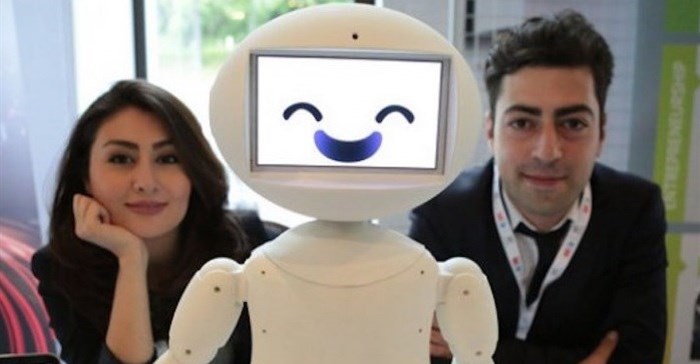
"Robots that are supposed to interact with humans have to process a great deal of information very quickly, and adapt their behaviours according to the interaction," says the CEO of LuxAI, Pouyan Ziafati. Ziafati wrote his doctoral thesis on artificial intelligence and robotics at the SnT - and founded LuxAI based on it. "Our robot is the first social robot to come out of Luxembourg."
"We have already run the prototype through practical tests. It received excellent scores for its social expressiveness, emotionality and ease of use,” the researcher adds.
At its core, its programming, LuxAI social robots are based on a so-called Robot Agent Programming Language, which Ziafati designed. This kind of programming is only accessible to experts. "Practitioners who want to teach a robot how to train stroke patients, for example, can't learn their way into it," says Ziafati. "They need an interface by which they can program the robot intuitively and naturally."
The interface is based on the same Android platform as is widespread on smartphones, and can make social robots suitable for the mass market. "Non-IT-expert people have made the first tests with our robots. They were able to program the robots for their purpose within 20 minutes. Our software lets anyone do it," Ziafati explains.
The applications for the robots include learning support for autistic children, in schools, in the entertainment industry or in geriatric care. "Social robots will never replace qualified personnel - but they can support them, since they have unlimited time and can take over routine tasks," says Ziafati.
LuxAI is now working with Fondation Autisme Luxembourg and three departments in the University of Luxembourg to develop applications for autism therapy and behavioural regulation, geriatric medicine and teaching foreign languages to children in kindergartens.

Design Indaba inspires and empowers people to create a better future through design and creativity. We are an online publication (www.designindaba.com) with an annual festival and social impact Do Tank.
Go to: www.designindaba.com